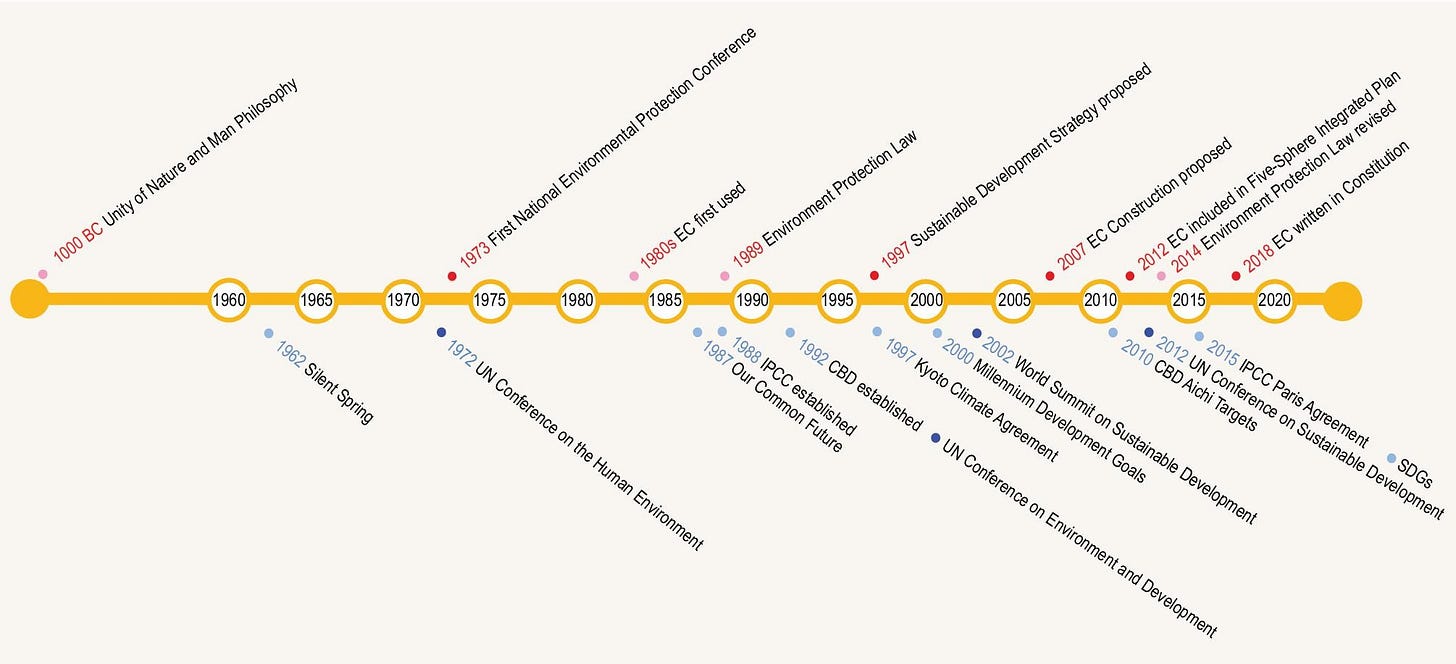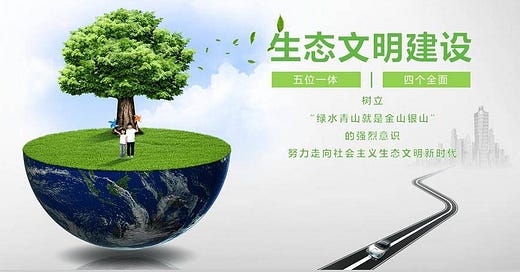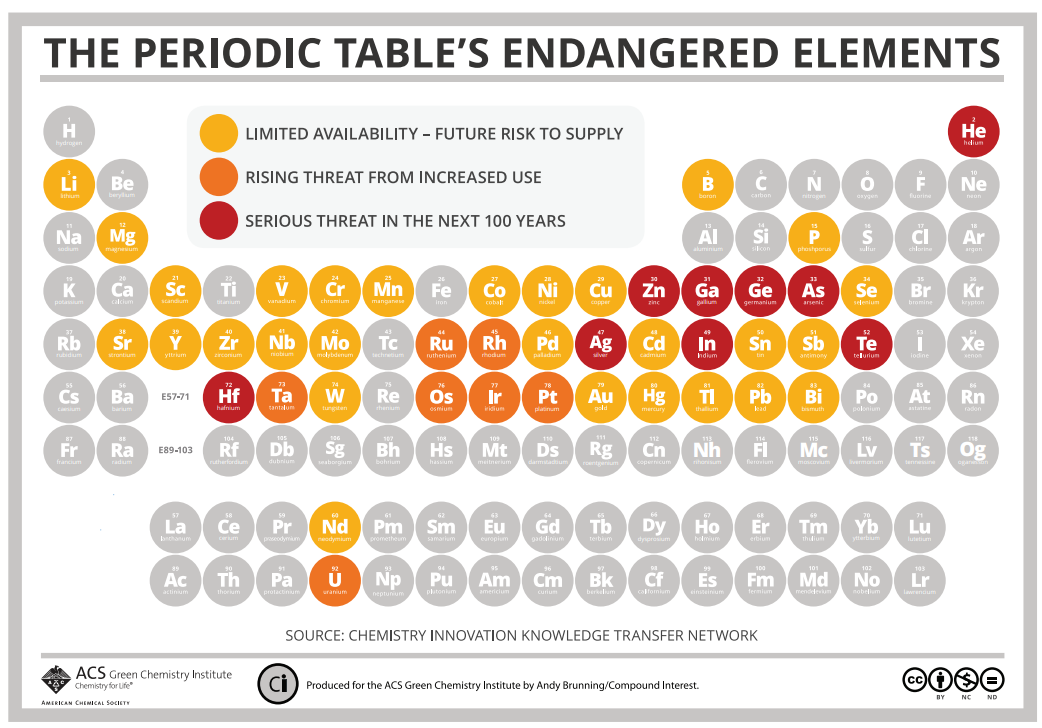The Role of Solar Energy in Chinese Ecological Civilization
Chinese Strategy for Green Future
Chinese Ecological Civilization: Bridging China and the World Through Sustainability
The concept of 'Ecological Civilization' translated as '生态文明 (Shengtai Wenming)' was first introduced by a Marxist Chinese student named Qianjiye, who wrote an article on the subject in the Journal of Moscow University in 1984. Generally this term refer to a civilization where society works like a natural ecosystem, and where humans live sustainably by using resources wisely. In this system, energy and waste are balanced and reused, creating a cycle of abundance that benefits both people and the environment.
This term, in the context of Chinese culture, also evokes ancient Taoist philosophy, where people are meant to live in harmony with the elements, as expressed by the saying "The Unity of Man and Nature" (天人合一). This philosophy underscores Chinese culture and the historical efforts to grasp the deeper secrets of natural laws.
The ecological narrative has been reinforced by the current government, which aims to differentiate Chinese modernization from the Western modernity paradigm, rooted in the Industrial Revolution. While Western society developed earlier than China, it also encountered significant pollution issues, leading to a mentality of "pollute first, clean up later". China wants to reverse this mentality into an economy where you actually don’t need to pollute to develop, and where extraction-production-consumption can occur in a circular way, having extraction - directly from consumption goods, thus creating premises for the "Ecological Civilization".

The concept was later implemented by the Chinese government agenda in 2007 [1] and then in 2012 when Xi Jinping became the secretary of Chinese Communist Party was even written in the constitution, being included in the 5 years Policy Plans. [2]
In 2016 Pan Yue (潘岳) at the time vice-minister of China’s State Environmental Protection Administration, argued that China being at the forefront in Marxist Political research, also has critical advantages and responsibilities being a political system that should and is meant to go against capitalism destruction of nature [2].
Ideologically, China should not surrender to the capitalist paradigm of extraction - production - consumption which is all but a circular ecological realm. The concept of Circular Economy, where one’s outputs (Waste) are other subjects inputs (Resources). In Pan Yue's view, 'Ecological Civilization' should be seen as an aspect of Marxism, within the framework of eco-socialism, which stands in sharp contrast to a capitalist economy.
In 2013, the Chinese government integrated into its political agenda the concepts of the "Belt and Road Initiative" and "Ecological Civilization" []. In a deeply interconnected and globalized world economy China is trying to expand its approach to ecology outside of the local borders. Resources, production, and consumption markets are all interconnected, but they require a new cultural and ethical framework. For this reasons China historically established connection with the outside world through several political and economic frames, such as the ongoing FOCAC (Forum on China-Africa Cooperation) or the South to South Cooperation (南南合作) or even the new "Community of Common Destiny" which is seeing human being all correlated and living with the same destiny. While each of these political frameworks seeks to unite China with other countries through extensive ideological efforts, 'Ecological Civilization' serves as the new ideology (software) to promote and export Chinese green technologies (hardware) to the rest of the world.
This narrative is also backed by China to enhance the political value of exchanging raw materials (resources) for high-end technology between China and underdeveloped countries. This exchange generates significant strategic value—both economic and political—for China, which is addressing its overproduction challenges, and for global South countries, which need affordable green energy to combat climate change and develop a robust industrial base.
We should remember that the energy transition is mineral extensive and based on materials like Rare Earth (REEs) Neodymium (Nd), Cerium (Ce), Dysprosium (Dy) etc which are considered together with other common extracted minerals like Lithium (Li), copper (Cu) fundamental energy-critical elements (ECEs) [4] and biggest abundance of raw material for global electrification economy’s comes from countries like DRC, Chile or Brasil, etc.
How Solar Energy is part of the 'Ecological Civilization'
The concept of 'Ecological Civilization' seeks to sustain industrialization and economic development while reducing carbon emissions that contribute to global warming. The Green transition is closely linked to the electrification the economy. In other words, the green economy, which aims to electrify our lives, serves as the core economic foundation for the 'Ecological Civilization' driving the new fuel for modern electric viability (Electrical Vehicle EVs) and the digital revolution which needs intensive use of electricity (Cloud Servers, Super Computers and Artificial Intelligence Services). Moreover, the ongoing shift toward electrification is driving society to become increasingly dependent on diverse energy resources and is leading to a new political paradigm.
The wave of electrification has been a long-standing trend and is more deeply embedded in China's economy and strategy than in other countries. The reason is simple, as I mentioned in a previous article (see: I° Chinese Photovoltaics) goals are clear: Sustainability, Independence, Innovation. Solar panels are a foundational brick in this new ideological and economic paradigm as they serve all of those goals.
If we observe the last few important events for climate change or global economic forums like the one in Davos in 2024 at the World Economic Forum (WEF) Important companies like LONGi Solar that manufacture Solar Panels were given space to direct efforts toward a more sustainable and green manufacturing process in renewable companies.
LONGi is a clear example of how Chinese companies are directly involved in the implementation of 'Ecological Civilization' on a global scale. Moreover, Chinese Solar Panels Manufacturers are central to what Chinese government calls '新三样' literally translates as 'China new trio' economic pillars whic are substantially, Electric Vehicles, Lithium Batteries and Solar Panels Cells (CPC Department of CPC Central Committee). In 2023 those new commodities and the services connected to them counted as 17.73 percent of the country's gross domestic product (GDP) with a growth of 6.4% according to National Bureau of Statistics (NBS).
Conclusions
It’s clear that China has been and continues to strategically plan a large portion of its economy. A key part of this plan is to guide various industries and the economy toward a new energy transition, significantly reducing reliance on fossil fuels.
While industrial planning follows a clear path driven by subsidies, infrastructure development, and incentives, there is another, increasingly interesting aspect: the narrative promoted by the government and elite. This narrative, embraced and leveraged by private companies, is used as a tool to build global relationships and business under a unique "Made in China" framework.
Are we ready to navigate this world and grasp the ideological implications behind the new green tech revolution?
Follow my Substack for insights and commentary on this evolving landscape.
Umberto Damasio
Some articles:
[1] Ecological Civilization: What is it and Why it Should be the Goal of Humanity Arran Gare; Culture of Sustainability (Culture della Sostenibilità), Vol.27(1): 8-23 2021
[2] 2018年03月 来源:中国环境报 生态文明写入宪法 责编:施麟、贺迎春
[3] Engel-Di Mauro, S., & Huan, Q. (2021). Introduction: China’s Eco-Civilisation in Theory and Practice. Capitalism Nature Socialism, 32(3), 61–64. https://doi.org/10.1080/10455752.2021.1959860
[4] Hurd AJ, Kelley RL, Eggert RG, Lee M-H. Energy-critical elements for sustainable development. MRS Bulletin. 2012;37(4):405-410. doi:10.1557/mrs.2012.54








